2.4 Exceptions, Plural-only and Singular-only Nouns
Note how the meaning of the noun ба́тько changes when it becomes plural.
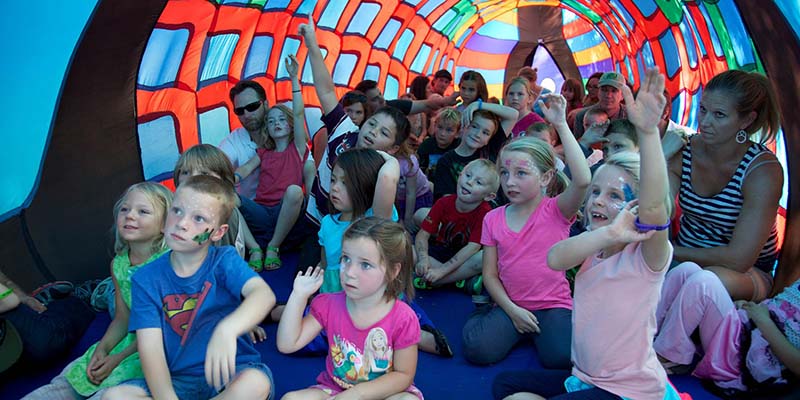
In this module, you will learn the main exceptions to the regular rules of plural formation and become familiar with the most common Ukrainian nouns that exist either only in plural form or only in singular form.
Завда́ння 1
Note how the noun below has two plural forms, depending on whether one says 2, 3, or 4 “children”, or “children” in general.

дити́на
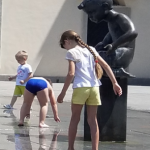
три дити́ни
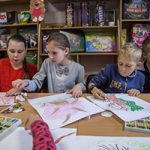
ді́ти
The first plural form above (дити́ни) is used ONLY with 2, 3, or 4. The same pattern applies to the nouns below:
люди́на – дві люди́ни – лю́ди (‘people’)
ді́вчина – дві ді́вчини – дівча́та (‘girls’, ‘girlfriends’)
Complete the sentences below paying careful attention to context and to what you have learned about the formation of plurals thus far.
The exceptional plural ending –та, as in the noun дівча́та, is also common for the neuter nouns that denote baby animals. Remember these common ones:
цуценя́-цуценя́та (‘puppies’)
котеня́-котеня́та (‘kittens’)
Завда́ння 2
Complete the sentences below paying careful attention to context and to what you have learned about the formation of plurals thus far.
Завда́ння 3
Look carefully at the picture and indicate whether the statements below are True (пра́вда) or False (непра́вда).
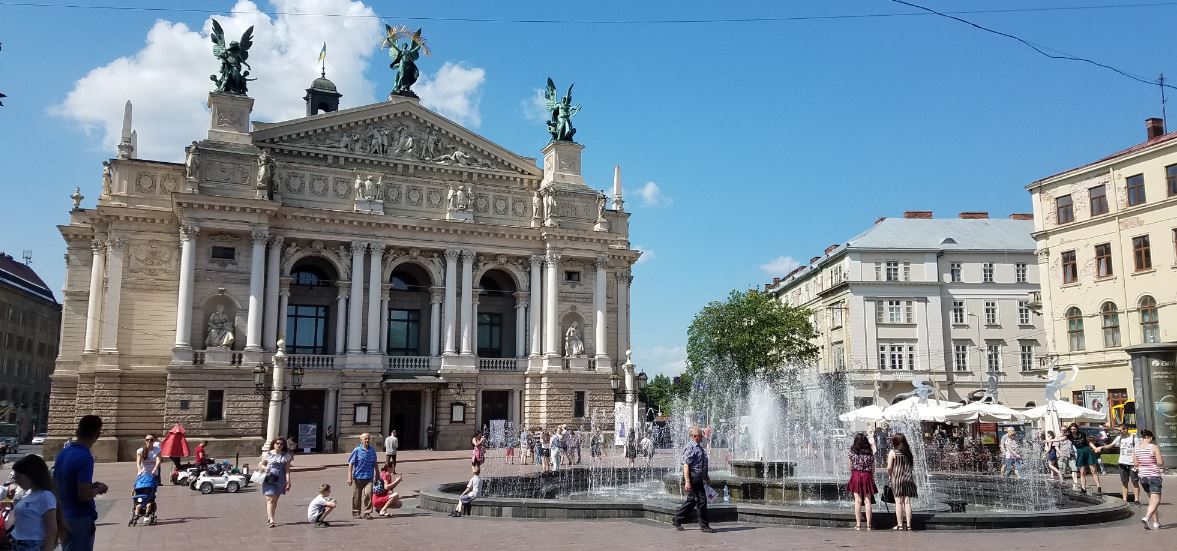
Завда́ння 4
Note the exceptional plural forms of the nouns below. The bolded word in the first sentence is in the singular. The bolded word in the second sentence is the same word in the plural.
- Це ма́ти і дити́на. — Це матері́ і ді́ти.
- Це мій друг Петро́. — Це мої́ дру́зі Петро́, Тара́с і А́нна.
- Жера́р Депардьє́ – францу́з, але́ громадяни́н Росі́ї. — Віта́лій та Володи́мир Кличко́ – громадя́ни Украї́ни.
- Бори́с Є́льцин – росія́нин. — Миха́йло Ба́ришніков і Марі́я Шара́пова – росія́ни.
Complete the sentences below paying careful attention to context and to what you have learned about the formation of plurals thus far.
Ціка́во!
Note how the meaning of the noun ба́тько changes when it becomes plural.
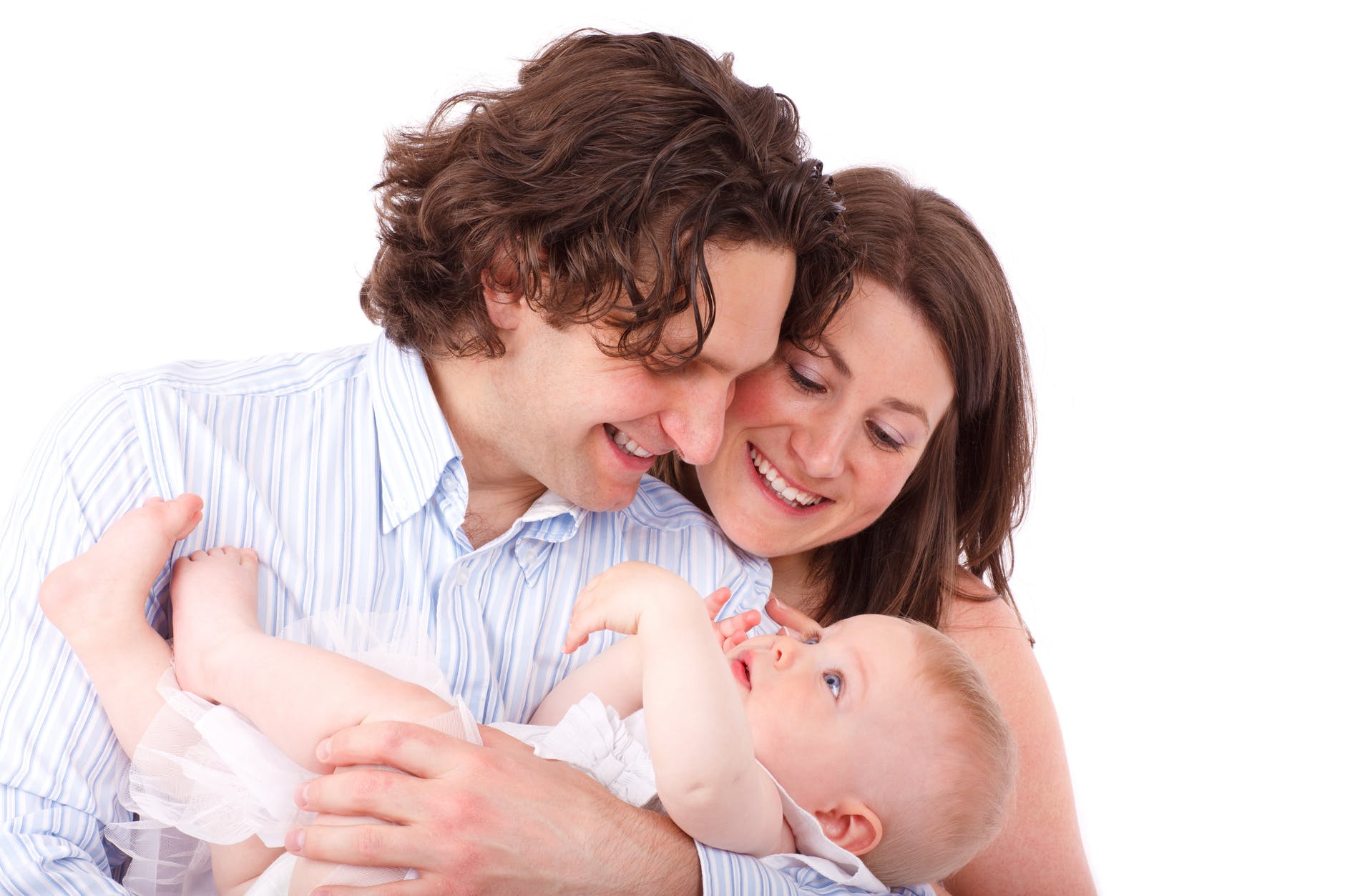
Це ма́ти, ба́тько і дити́на.
Ма́ти і ба́тько = батьки́
Це батьки́ і дити́на.
Завда́ння 5
You will hear eight sentences. For each sentence, choose the correct number of people mentioned. Then answer the question that follows.
Transcript – Завдання 5
- Де батько?
- Це громадяни України.
- Тут матері та діти.
- Хто твій друг?
- Батьки – юристи.
- Де мати?
- Ви громадянин США?
- Ось друзі з України.
Важли́во!
Some nouns in Ukrainian only exist in plural form. These include paired items, for example:
штани́ (pants)
джи́нси (jeans)
окуля́ри (eye-glasses)
но́жиці (scissors)
…games, such as ша́хи (chess)
They also include some collective nouns that are singular in English, for example:
гро́ші (money)
лі́ки (medication)
ме́блі (furniture)
Finally, remember two other common nouns that only exist in plural form:
две́рі (door)
кані́кули (school break/holidays)
With some of these nouns, it is possible to use numeral “one” in plural form – одні́:
одні́ джи́нси
одні́ две́рі
одні́ кані́кули
Завда́ння 6
Complete the sentences below paying careful attention to context and to what you have learned about the formation of plurals thus far.
Важли́во!
Some nouns in Ukrainian only have singular form. Many of these are collective nouns, such as:
ї́жа (food)
о́дяг (clothes)
взуття́ (shoes)
Some are abstract notions, for example:
готі́вка (cash)
інформа́ція (information)
полі́тика (politics)
матема́тика (mathematics)
A few fruits, vegetables, and other types of food in Ukrainian also exist only in singular form:
виногра́д (grapes)
шокола́д (chocolate)
карто́пля (potatoes)
мали́на (raspberries)
Завда́ння 7
You will hear ten questions. Select the correct response to each question.
Transcript – Завдання 7
- Де гроші?
- Де піжама?
- Де ліки?
- Де готівка?
- Де окуляри?
- Де картопля?
- Де одяг?
- Де двері?
- Де взуття?
- Де виноград?
Мо́вний пазл
Look through the activities you have just completed and choose the correct statements below to summarize what you have learned.
А тепе́р тест!
Complete the dialogues below by filling in the missing endings. Then answer the questions that follow.

